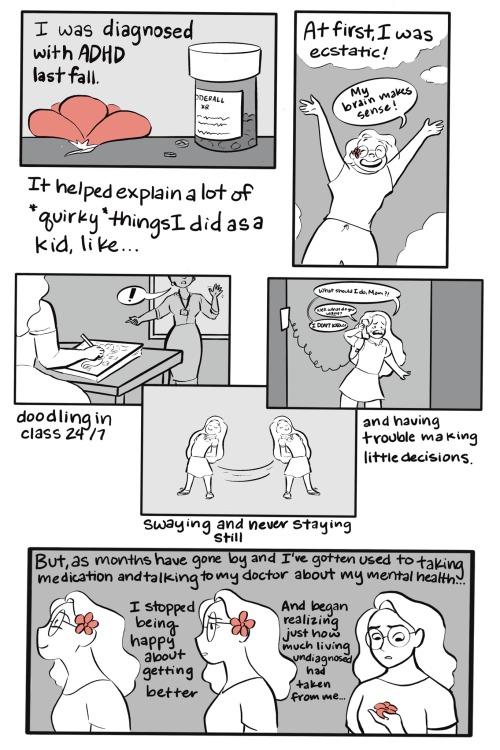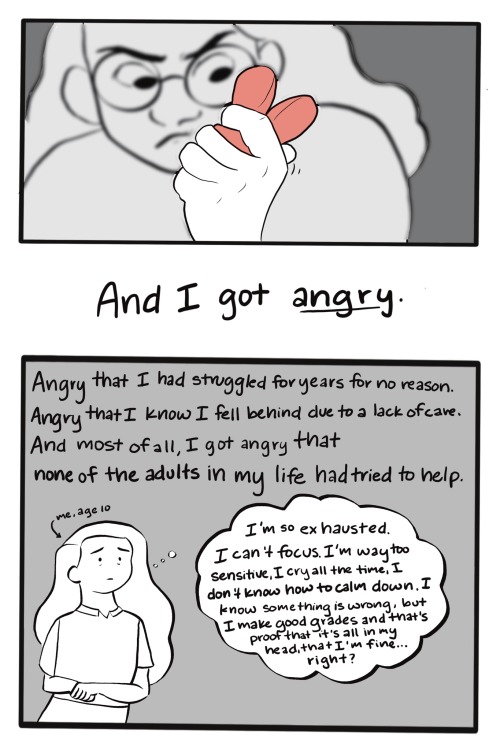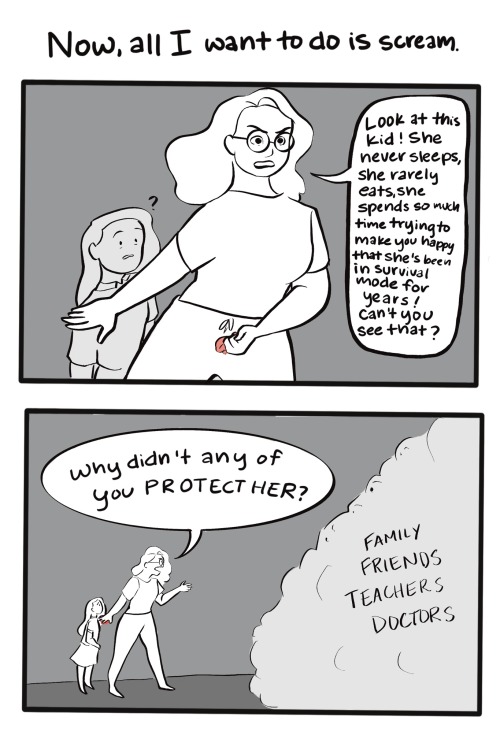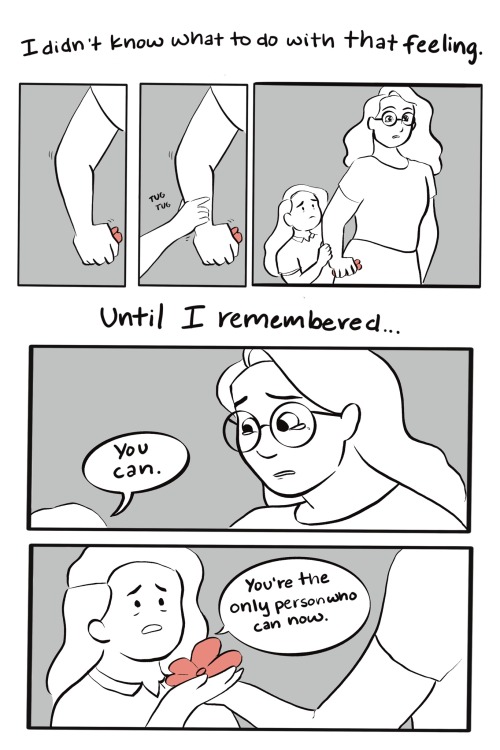I Believe In Free Education, One That’s Available To Everyone; No Matter Their Race, Gender, Age, Wealth,

I believe in free education, one that’s available to everyone; no matter their race, gender, age, wealth, etc… This masterpost was created for every knowledge hungry individual out there. I hope it will serve you well. Enjoy!
FREE ONLINE COURSES (here are listed websites that provide huge variety of courses)
Alison
Coursera
FutureLearn
open2study
Khan Academy
edX
P2P U
Academic Earth
iversity
Stanford Online
MIT Open Courseware
Open Yale Courses
BBC Learning
OpenLearn
Carnegie Mellon University OLI
University of Reddit
Saylor
IDEAS, INSPIRATION & NEWS (websites which deliver educational content meant to entertain you and stimulate your brain)
TED
FORA
Big Think
99u
BBC Future
Seriously Amazing
How Stuff Works
Discovery News
National Geographic
Science News
Popular Science
IFLScience
YouTube Edu
NewScientist
DIY & HOW-TO’S (Don’t know how to do that? Want to learn how to do it yourself? Here are some great websites.)
wikiHow
Wonder How To
instructables
eHow
Howcast
MAKE
Do it yourself
FREE TEXTBOOKS & E-BOOKS
OpenStax CNX
Open Textbooks
Bookboon
Textbook Revolution
E-books Directory
FullBooks
Books Should Be Free
Classic Reader
Read Print
Project Gutenberg
AudioBooks For Free
LibriVox
Poem Hunter
Bartleby
MIT Classics
Many Books
Open Textbooks BCcampus
Open Textbook Library
WikiBooks
SCIENTIFIC ARTICLES & JOURNALS
Directory of Open Access Journals
Scitable
PLOS
Wiley Open Access
Springer Open
Oxford Open
Elsevier Open Access
ArXiv
Open Access Library
LEARN:
1. LANGUAGES
Duolingo
BBC Languages
Learn A Language
101languages
Memrise
Livemocha
Foreign Services Institute
My Languages
Surface Languages
Lingualia
OmniGlot
OpenCulture’s Language links
2. COMPUTER SCIENCE & PROGRAMMING
Codecademy
Programmr
GA Dash
CodeHS
w3schools
Code Avengers
Codelearn
The Code Player
Code School
Code.org
Programming Motherf*?$%#
Bento
Bucky’s room
WiBit
Learn Code the Hard Way
Mozilla Developer Network
Microsoft Virtual Academy
3. YOGA & MEDITATION
Learning Yoga
Learn Meditation
Yome
Free Meditation
Online Meditation
Do Yoga With Me
Yoga Learning Center
4. PHOTOGRAPHY & FILMMAKING
Exposure Guide
The Bastards Book of Photography
Cambridge in Color
Best Photo Lessons
Photography Course
Production Now
nyvs
Learn About Film
Film School Online
5. DRAWING & PAINTING
Enliighten
Ctrl+Paint
ArtGraphica
Google Cultural Institute
Drawspace
DragoArt
WetCanvas
6. INSTRUMENTS & MUSIC THEORY
Music Theory
Teoria
Music Theory Videos
Furmanczyk Academy of Music
Dave Conservatoire
Petrucci Music Library
Justin Guitar
Guitar Lessons
Piano Lessons
Zebra Keys
Play Bass Now
7. OTHER UNCATEGORIZED SKILLS
Investopedia
The Chess Website
Chesscademy
Chess.com
Spreeder
ReadSpeeder
First Aid for Free
First Aid Web
NHS Choices
Wolfram Demonstrations Project
Please feel free to add more learning focused websites.
*There are a lot more learning websites out there, but I picked the ones that are, as far as I’m aware, completely free and in my opinion the best/ most useful.
More Posts from Cosmiccowboystuddies and Others
SCHOOL CHEAT SHEET!!
soothe yourself | self care
stationery
printables
helpful sites
music for studying | more music
note taking methods | another one
studying methods
english | physics | chemistry | biology | maths | languages
how to learn a language
ultimate guide for writing | writing resources | writing helps | tips for writers
how to write a kickass essay | write a great essay | stuff you need to write essays | essay tips | essay checklist | grade your essay
how do I study for…
bullet journals | a guide to bullet journals
the testing effect
everything you need to succeed in school
time management
organisation
how to annotate | another one
guide to aesthetically pleasing notes | improve your handwriting
create a study guide
resources | helpful websites | there’s an app for that
get more out of google
productivity resources | 14 apps to become productive | how to stay productive
lazy night owl school survival guide
apps for a better life | useful websites for students
masterpost of studying tips
social media citation guide
college masterpost | another one | starting college on the right foot | packing for college | how to survive in college
how to ace that college interview
food to stay motivated | motivation guide
how to stay awake in class
balancing a healthy lifestyle
studying on your period
huge masterpost for the semester
a very long list to help you survive school
not enough time to finish an assignment?
100 delicious cheap recipes
53 posts for students
high school cheat sheet
other cheat sheets
Listen to me: You get good at things by being bad at them. You learn by failing. You gain competency and a sense of mastery by failing at something many times and in many interesting ways.
The sooner you are able to laugh at your own failures, to enjoy the process of messing up, the easier life will be. Because you'll no longer be afraid of learning.
And once you're no longer afraid of failing, you can learn anything.
Why Originality in Writing Isn't Always Possible
I was writing for years before I encountered a problem with writing as a whole—that most ideas have already been published.
When someone first told me that though, they said it like, "You'll never think of something that hasn't already been written."
The phrasing makes it sound like all story ideas are a waste of your time. I began spiraling. I researched every short story I'd ever written. I looked up books similar or identical to other books I loved.
Turns out, that person was right.
Sort of.
New Ideas Are Old News
Think about how long humanity has existed. Think about the many experiences that generations have shared—love, loss, happiness, adventure, self-growth, your coming-of-age years.
Story ideas inspired by whatever you go through in life have likely already been lived or thought of, given the trillions of people who have walked this planet and interacted with each other.
BUT
Originality Doesn't Only Come From Ideas
This is what I wish someone had told me back when I was spiraling.
I'll say it again for those in the back—
Originality Doesn't Only Come From Ideas
It also comes from your voice and your perspective!
Voice can feel tricky to grasp when you're starting out as a writer. Everyone can throw a few words on a page. How do you know what your voice sounds like and if readers will respond well to it?
Imagine two friends going on a trip. They do everything together. They sit on the beach, they eat lunch at a restaurant, and watch a movie before heading home. Then they each journal about their day in notebooks.
Those entries would look nothing alike! One friend might relax on the beach and feel so at peace that they take a nap, while another gets sunburned easily and hides under their umbrella with a scowl. Both ultimately enjoyed their day for different reasons. The beach lover got time by the ocean and the other friend who liked the beach much less fell in love with a new dish at the restaurant because they're a foodie.
You'll also frame your stories differently than any other writer. Like accents change the way every person speaks out loud, writers structure sentences and describe things/events/emotions very differently.
These may seem like insignificant details that set stories apart, but they make all the difference.
Think about Homer’s Odyssey. Circe is a minor character in the long tale and basically gets about a minute of the reader's time before Odysseus moves on to the next phase of his journey home. In Madeline Miller's Circe, the goddess becomes the main character and the ultimate portrayal of fear, rage, hurt and healing that are universally experienced but are especially true to the female experience.
Both stories follow the same timeline, so readers don't pick them up to necessarily get surprised by something Brand New to Literature™. Instead, they read direct retellings to learn from the characters in new ways, live momentarily through someone else's eyes, and bond over another aspect of the human experience.
Circe is an incredible work of art. Your idea—whether it's a direct retelling, indirect retelling, or full of literary devices from previous works—can be incredible too.
How Do You Know Which Ideas Are Worth Writing?
If a story idea doesn't immediately make you jump for your computer or a pen/paper, is it worth writing? My best advice is to sit with it.
Some of my best work has come from stories that got to marinate. I put them in the back of my mind and thought about the characters or themes or plot when something sparked another idea. By the time I started typing, the story was more vivid than when I first though of it.
But also, I have probably twenty failed ideas for every story I've written.
Give yourself time to get to know your ideas. If they're worth your time, they'll sit with you too.





big ole comic about adult ADHD diagnosis + big feelings + making sure childhood me is okay
Jane Austen really said ‘I respect the “I can fix him” movement but that’s just not me. He’ll fix himself if knows what’s good for him’ and that’s why her works are still calling the shots today.






musings on may
Franz Kafka Diaries, 1914-1923 | Felix Vallotton, The Dordogne with Carrenac (1925) | Vera Brittain, “Because You Died: Poetry and Prose of the First World War and After” | Jin Xingye | Haruki Murakami, "Norwegian Wood" | Jin Xingye
support my blog
The most frustrating experience as a writer is having a clear vision in your mind of the story you want to tell but being too afraid to put pen to paper for fear of failing to do the story justice. I’m so scared that my actual execution will fail to meet my expectations that I’m paralysed to even start.



I will succeed. Not immediately. But definitely.
Reading my own writing like
Is it the best thing in the world? No
Is it flawless? No
Do I love it from the bottom of my heart, to the moon and back? Oh my God yes
-
 circusclowne liked this · 3 weeks ago
circusclowne liked this · 3 weeks ago -
 circusclowne reblogged this · 3 weeks ago
circusclowne reblogged this · 3 weeks ago -
 huzzlemugg reblogged this · 3 weeks ago
huzzlemugg reblogged this · 3 weeks ago -
 xferalpyr0pterax reblogged this · 3 weeks ago
xferalpyr0pterax reblogged this · 3 weeks ago -
 soaricarus reblogged this · 3 weeks ago
soaricarus reblogged this · 3 weeks ago -
 tuvwolf reblogged this · 3 weeks ago
tuvwolf reblogged this · 3 weeks ago -
 tuvwolf liked this · 3 weeks ago
tuvwolf liked this · 3 weeks ago -
 system-failure404 reblogged this · 3 weeks ago
system-failure404 reblogged this · 3 weeks ago -
 system-failure404 liked this · 3 weeks ago
system-failure404 liked this · 3 weeks ago -
 awesometisim liked this · 3 weeks ago
awesometisim liked this · 3 weeks ago -
 theempireexodus liked this · 3 weeks ago
theempireexodus liked this · 3 weeks ago -
 kerescarrotz reblogged this · 3 weeks ago
kerescarrotz reblogged this · 3 weeks ago -
 negativespaceland liked this · 3 weeks ago
negativespaceland liked this · 3 weeks ago -
 luxlitemidnight reblogged this · 3 weeks ago
luxlitemidnight reblogged this · 3 weeks ago -
 eternalparadisearchive reblogged this · 3 weeks ago
eternalparadisearchive reblogged this · 3 weeks ago -
 swordhounds reblogged this · 3 weeks ago
swordhounds reblogged this · 3 weeks ago -
 swordhounds liked this · 3 weeks ago
swordhounds liked this · 3 weeks ago -
 teawithkisses liked this · 3 weeks ago
teawithkisses liked this · 3 weeks ago -
 summergoodwife liked this · 3 weeks ago
summergoodwife liked this · 3 weeks ago -
 dryrwit reblogged this · 3 weeks ago
dryrwit reblogged this · 3 weeks ago -
 dryrwit liked this · 3 weeks ago
dryrwit liked this · 3 weeks ago -
 barkingchort liked this · 3 weeks ago
barkingchort liked this · 3 weeks ago -
 mannirudi liked this · 3 weeks ago
mannirudi liked this · 3 weeks ago -
 mannirudi reblogged this · 3 weeks ago
mannirudi reblogged this · 3 weeks ago -
 inspirationalclass reblogged this · 3 weeks ago
inspirationalclass reblogged this · 3 weeks ago -
 sunkissedfawn liked this · 3 weeks ago
sunkissedfawn liked this · 3 weeks ago -
 nightwalker78 liked this · 4 weeks ago
nightwalker78 liked this · 4 weeks ago -
 krisnlol liked this · 4 weeks ago
krisnlol liked this · 4 weeks ago -
 milf-stevebuscemi liked this · 4 weeks ago
milf-stevebuscemi liked this · 4 weeks ago -
 lockedboy6sixtysix liked this · 4 weeks ago
lockedboy6sixtysix liked this · 4 weeks ago -
 panjam3 liked this · 4 weeks ago
panjam3 liked this · 4 weeks ago -
 popiko329 liked this · 4 weeks ago
popiko329 liked this · 4 weeks ago -
 invertedlayers liked this · 4 weeks ago
invertedlayers liked this · 4 weeks ago -
 diabeticbutterflywings reblogged this · 4 weeks ago
diabeticbutterflywings reblogged this · 4 weeks ago -
 diabeticbutterflywings liked this · 4 weeks ago
diabeticbutterflywings liked this · 4 weeks ago -
 mangakoibitochan reblogged this · 4 weeks ago
mangakoibitochan reblogged this · 4 weeks ago -
 mangakoibitochan liked this · 4 weeks ago
mangakoibitochan liked this · 4 weeks ago -
 detective-horse-girl liked this · 4 weeks ago
detective-horse-girl liked this · 4 weeks ago -
 urlmimi liked this · 4 weeks ago
urlmimi liked this · 4 weeks ago -
 eddyeddy67 liked this · 4 weeks ago
eddyeddy67 liked this · 4 weeks ago -
 goddess-of-guilt reblogged this · 4 weeks ago
goddess-of-guilt reblogged this · 4 weeks ago -
 goddess-of-guilt liked this · 4 weeks ago
goddess-of-guilt liked this · 4 weeks ago -
 the-ochs-philharmonic reblogged this · 4 weeks ago
the-ochs-philharmonic reblogged this · 4 weeks ago -
 the-ochs-philharmonic liked this · 4 weeks ago
the-ochs-philharmonic liked this · 4 weeks ago -
 wolfbookdragon liked this · 1 month ago
wolfbookdragon liked this · 1 month ago -
 nerdhelp reblogged this · 1 month ago
nerdhelp reblogged this · 1 month ago -
 proudblacc liked this · 1 month ago
proudblacc liked this · 1 month ago -
 mchemita liked this · 1 month ago
mchemita liked this · 1 month ago

186 posts